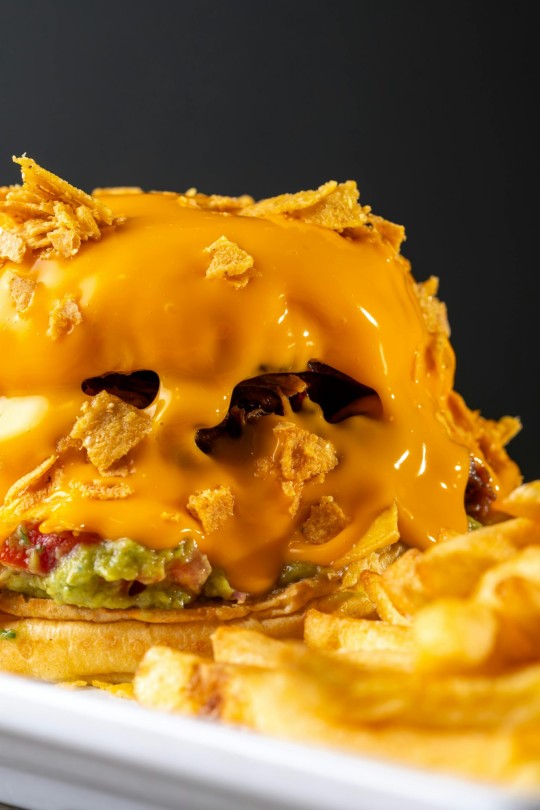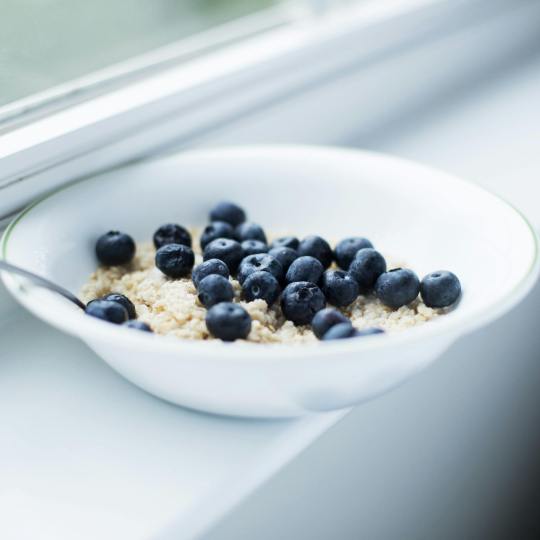Practical advice from a regular guy. Ideas are my own, but I may rely on AI a little or a lot to express them. Mainly because I'm lazy.
Don't wanna be here? Send us removal request.
Text
If you're lamenting the fact that you used to be able to shoot through a 500-page novel in like a day when you were in middle school and now you can't, it's worth bearing in mind that a big part of that is because when you were in middle school, your reading comprehension sucked. Yes, mental health and the stresses of adult life can definitely be factors, but it's also the case that reading is typically more effortful as an adult because you've learned to Ponder The Implications. The material isn't just skimming over the surface of your brain anymore, and some of the spoons you used to spend on maximising your daily page count are now spent on actually thinking about what you're reading!
80K notes
·
View notes
Text
Willpower Won’t Last, but Habits Will: How to Use Your Limited Willpower to Create Lasting Change
Disclaimer: I am not a nutrition expert or health professional. I have no formal training in these fields; my insights are based solely on personal life experience. I use AI tools to assist me, sometimes a little, sometimes a lot, mainly because I’m a bit lazy. However, all thoughts, ideas, and concepts shared here are entirely my own.

You've probably been here before: you decide to eat better and move more. You're motivated, maybe even excited, and you hit the ground running. You make a plan, hit the gym, swap the pizza for salads, and for a while, it all seems to be working.
But give it a few days, maybe a week or two, and that initial drive fades. You’re tired, stressed, or just not feeling it anymore. Suddenly, that salad looks less appealing than a burger, and skipping the gym feels easier than going. You start sliding back into old habits, and before you know it, you're back where you started.

If you’re nodding along to this, you’re not alone. This is the problem with relying solely on willpower. It gets you going, but it’s not enough to keep you moving long-term. That's where mindful regulation comes in. The trick isn’t to rely on willpower forever. Instead, use that fleeting motivation to build habits that last—so when willpower runs dry, your habits carry the load.
Willpower: The Short-Term Boost
Let’s be real. Willpower is like your morning coffee—it gives you a boost, gets you moving, but it’s temporary. You can only rely on it for so long before it wears off. Think of it like a battery that drains as the day goes on. Once it’s drained, you’re back to old routines—the ones you were trying to ditch.

Take Sam (a fictional character, but I promise you know someone just like him). Sam’s always trying to get in shape, and every January, like clockwork, he signs up for the gym. He buys a bunch of veggies, swears off sugar, and kicks things off like a pro. For a week, he’s meal-prepping, getting in his workouts, saying no to dessert.
But by week two, things change. The salad gets boring, the workouts feel harder, and by the third week, Sam’s back to grabbing takeout on his way home from work. His willpower has run out, and because he didn’t build any habits to rely on, he slips right back into his old ways.
Sound familiar? That’s why willpower alone won’t work. Sure, it’ll help you start a new routine, but it’s not a long-term solution.
How to Use Willpower to Build Habits
So what’s the answer? The key is to use that short burst of willpower more strategically. Instead of throwing all your energy into changing everything at once, focus on building a few small, sustainable habits. Habits don’t require as much mental energy to maintain, and once they’re set, you can rely on them even when your motivation is running low.
Here’s what you can do:
1. Pick 1-2 good habits to build and 1-2 bad habits to change.
Don’t go overboard. Trying to change everything at once is a guaranteed way to burn out. Instead, start small. Choose one or two habits that feel manageable—something you can realistically keep up, even on tough days. At the same time, pick a bad habit to focus on dropping, but again, keep it simple.

2. Make it realistic.
You know yourself better than anyone. If running five days a week is not your thing, don’t force it. Maybe a 30-minute walk after dinner is more your speed. Or if meal prepping every night sounds overwhelming, try just packing a healthy lunch for work instead. It’s better to build a habit that you know you can keep up, rather than setting yourself up to fail.
3. Set yourself up for success.
Don’t rely on willpower alone to get you through the day. Make things easier for yourself. If mornings are rushed, prepare breakfast the night before. Keep healthy snacks around so you’re not reaching for chips when hunger hits. Little steps like this make sticking to your habits feel effortless.

4. Start slow and build.
Don’t cut out every unhealthy food at once. Start by switching out one meal a day. Maybe instead of sugary cereal, you switch to oatmeal with blueberries and a bit of maple syrup or stevia. Or swap your afternoon soda for sparkling water. These small changes make a big difference over time, and once they become habits, you can add more.
5. Make habits automatic.
The goal is to get your habits on autopilot. You don’t think about brushing your teeth—you just do it. That’s what you want for your new habits. For example, take a walk after dinner every night, or prepare your lunch as soon as you get home. Once these routines are automatic, you’ll keep doing them without needing much thought or willpower at all.
Simple, Sustainable Habit Ideas
Here are some manageable ideas to help you get started:
For Movement:
Take a 30-minute walk every other day.
Stretch for 10 minutes before bed.
Use the stairs at work instead of the elevator.
For Eating:
Plan one meal a day to be completely free of processed foods.
Replace your sugary snacks with healthier options, like nuts or fruit.
Drink a glass of water before every meal.

For Planning:
Pack your lunch the night before so you’re not scrambling in the morning.
Track your meals with a calorie-counting app, if that helps you stay on course.
Plan your meals at the start of the week to avoid last-minute decisions.
When Willpower Fades, Lean on Your Habits
The real power of this approach is that you’re setting yourself up for long-term success. When willpower fades (and it will), you’ll have habits to lean on. You won’t need to muster the energy to make healthy decisions—you’ll just do them because that’s what you’ve trained yourself to do.
So don’t get discouraged when the initial excitement burns out. Use that time wisely, and let it be the start of something bigger. Build those habits now, so that when motivation dips, your new routines can carry you through.
No one changes their life overnight. But small, intentional changes? Those add up over time. And that’s how you make willpower work for you—not just for today, but for the long haul.
#healthy habits#healthychoices#healthy weight loss#healthyhabits#healthy eating#healthyliving#self improvement#self-care#goals#goal setting#willpower#self control
2 notes
·
View notes
